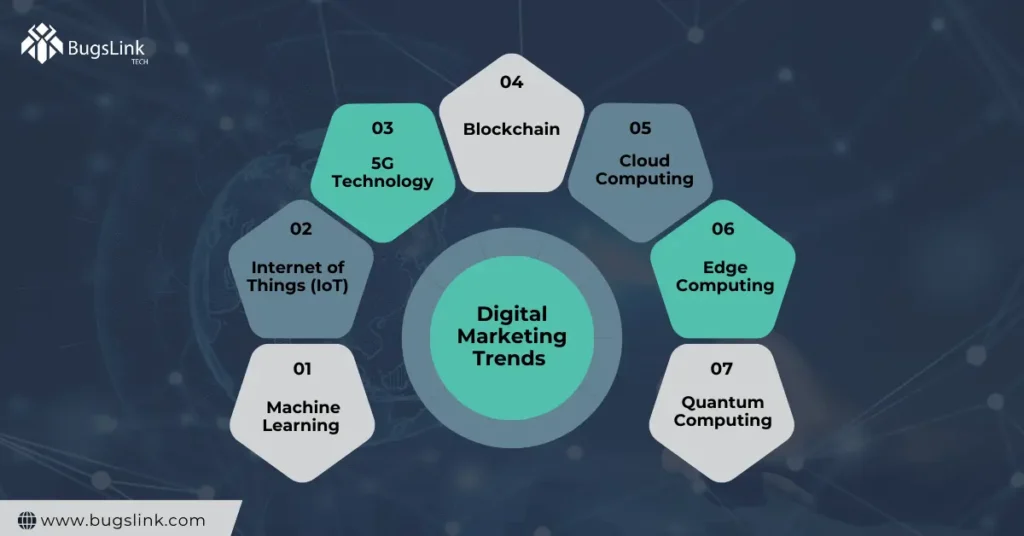How Digital Life is Revolutionizing Personal Productivity in 2025

As we step into the future of 2025, the impact of digital tools on personal productivity becomes increasingly profound. From innovative productivity apps to cutting-edge automation software, the landscape is evolving rapidly. Let's delve into how these digital advancements are reshaping the way we work and enhance our personal productivity in this dynamic era.
In the following paragraphs, we will explore the key aspects of this transformation and uncover the exciting possibilities that lie ahead.
Impact of Digital Tools on Personal Productivity
In the fast-paced world of 2025, digital tools have revolutionized personal productivity by streamlining tasks, automating processes, and providing valuable insights. These tools have become indispensable in managing daily activities and maximizing efficiency.
Popular Digital Tools Enhancing Personal Productivity
- Productivity Apps: Apps like Todoist, Trello, and Evernote help users organize tasks, set reminders, and collaborate with teams seamlessly.
- Automation Software: Tools like Zapier and IFTTT automate repetitive tasks, saving time and reducing manual effort.
- Virtual Assistants: Virtual assistants like Siri, Alexa, and Google Assistant provide hands-free assistance for scheduling, reminders, and information retrieval.
Digital tools offer a wide range of features to enhance personal productivity, from task management to communication and time tracking.
Benefits and Challenges of Relying on Digital Tools
- Benefits:
- Increased Efficiency: Digital tools help in prioritizing tasks, reducing errors, and improving overall productivity.
- Remote Accessibility: Users can access their tools from anywhere, allowing for flexibility in work and collaboration.
- Data Insights: Tools provide valuable data analytics to track progress, identify trends, and make informed decisions.
- Challenges:
- Dependency: Over-reliance on digital tools can lead to reduced critical thinking and problem-solving skills.
- Security Risks: Storing sensitive information on digital platforms may expose users to data breaches and privacy concerns.
- Training and Adaptation: Constant updates and new features require users to invest time in learning and adapting to changes.
Remote Work and Flexibility

In today's digital age, the shift towards remote work has significantly impacted personal productivity. With the help of advanced digital tools, individuals are now able to work from anywhere, at any time, leading to a more flexible work environment.
Increased Flexibility in Work Schedules
- Remote work allows employees to create their own schedules, optimizing their productivity during their most productive hours.
- Digital tools like project management software and communication platforms enable real-time collaboration, regardless of team members' locations.
- Employees can balance work and personal commitments more effectively, leading to improved overall well-being and job satisfaction.
Productivity Levels of Remote Workers vs. Office-based Workers
- Studies have shown that remote workers often report higher levels of productivity due to fewer distractions and the ability to customize their work environment.
- With the use of digital tools for time tracking and task management, remote workers can better manage their workload and stay focused on deliverables.
- Traditional office-based workers may experience productivity dips due to commuting time, office distractions, and rigid work hours.
Data Management and Decision-making
In the digital age, data management plays a crucial role in personal productivity. The ability to efficiently handle and analyze data can significantly impact decision-making processes, leading to more informed choices and increased productivity.
Impact of Data Analytics and AI
- Data analytics and AI tools are revolutionizing the way individuals manage and utilize data for personal productivity. These technologies can process vast amounts of data in real-time, providing valuable insights and trends.
- By leveraging data analytics, individuals can identify patterns in their behavior, work habits, and performance, allowing them to make informed decisions on how to optimize their productivity.
- AI algorithms can analyze data to predict future outcomes, helping individuals prioritize tasks, set goals, and streamline their workflow for maximum efficiency.
Scenario: Digital Data Management Tools for Personal Productivity
Imagine a scenario where an individual uses digital data management tools to enhance their personal productivity. By integrating these tools into their daily routine, they can:
- Organize and categorize their tasks, projects, and deadlines in a centralized digital platform, ensuring they stay on track and focused.
- Utilize data analytics to track their progress, identify bottlenecks, and adjust their workflow for optimal efficiency.
- Employ AI-powered insights to prioritize tasks based on urgency, importance, and impact, enabling them to make better decisions on how to allocate their time and resources.
Balancing Digital Presence with Personal Well-being

In today's digital age, constant connectivity has become the norm, blurring the lines between work and personal life. This can have a significant impact on personal well-being and productivity if not managed effectively.
Effects of Constant Connectivity
Constant connectivity can lead to burnout, increased stress levels, and a feeling of being overwhelmed. It can also disrupt sleep patterns, decrease focus, and hinder the ability to disconnect and relax.
Strategies for Maintaining Balance
- Set boundaries: Establish clear boundaries between work and personal time to avoid constant availability and ensure time for relaxation and self-care.
- Practice digital detox: Take regular breaks from screens, social media, and emails to recharge and reduce mental fatigue.
- Prioritize self-care: Make time for activities that promote well-being, such as exercise, mindfulness practices, and hobbies outside of work.
Role of Mindfulness Practices
Mindfulness practices, such as meditation and deep breathing exercises, can help enhance personal productivity by improving focus, reducing stress, and promoting a sense of calm amidst a digital lifestyle. Incorporating mindfulness into daily routines can also increase self-awareness and resilience, leading to better decision-making and overall well-being.
Ultimate Conclusion

In conclusion, the intersection of digital life and personal productivity in 2025 paints a picture of endless opportunities and challenges. As we navigate this evolving landscape, it's clear that adapting to technological changes is essential for maximizing our efficiency and achieving our goals in the digital age.
FAQ Guide
How can I effectively balance my digital presence with personal well-being?
To strike a healthy balance, set boundaries for screen time, practice mindfulness, and prioritize self-care activities to disconnect from the digital world.
What are some popular digital tools that will enhance personal productivity in 2025?
Some popular tools include AI-powered assistants, collaborative project management platforms, and advanced analytics software tailored for personal task management.
Is remote work truly beneficial for personal productivity when compared to traditional office-based work?
Remote work offers benefits like flexibility and reduced commuting time, but success depends on individual preferences and the effective use of digital tools to stay organized and connected.

